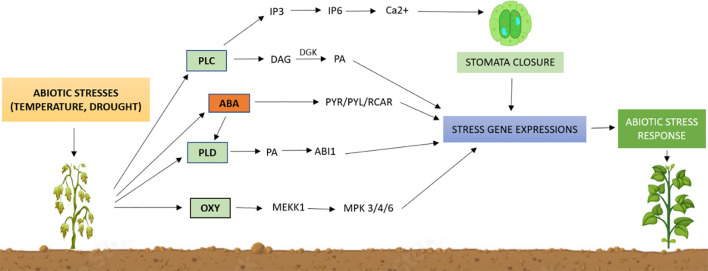Figure 8.
Outline of lipid-mediated pathways for abiotic stress tolerance in plants. Abiotic stresses activate membrane-bound phospholipases to generate lipid signaling molecules, such as phosphatidic acid (PA), inositol phosphates (IP3, IP6), and oxylipins, and induce the abscisic acid (ABA) signaling pathway. These lipids control protein activity, location, and structure while activating specific stress genes. Although the downstream mechanisms of lipid signaling remain poorly understood, changes in gene expression can cause physiological changes that lead to an environmental stress response. PLC, phospholipase C; PLD, phospholipase D; IP3, inositol triphosphate; IP6, inositol hexakisphosphate; DAG, diacylglycerol; DGK, diacylglycerol kinase; PA, phosphatidic Acid; PYR/PYL/RCAR, PYR/PYL/RCAR proteins that interact with ABI; MEKK1, MAPK kinase 1; MPK3/4/6, mitogen-activated protein kinase 3/4/6.

